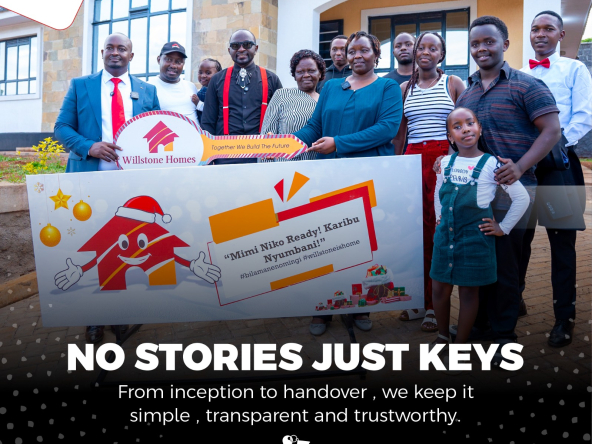The Trust Dilemma in Off-Plan Gated Communities
Buying a home is one of the biggest financial commitments a Kenyan family can make. For those drawn to off-plan gated communities in Kenya, the attraction is clear: flexible payment plans, lower entry prices, and the promise of living in a secure, modern neighborhood. But unlike buying a completed house, off-plan purchases demand something far more intangible—trust. Buyers must believe that the developer will deliver what is promised, within the agreed timeframe, and without hidden compromises.
When Trust Builds Momentum
In Nairobi and satellite towns like Kiambu, Kitengela, and Athi River, developers who establish credibility tend to enjoy faster uptake of their projects. For instance, real estate developers in Nairobi with a track record of timely delivery and quality finishing often sell out their units even before breaking ground. Positive word of mouth, diaspora endorsements, and visible progress on previous projects create a cycle of confidence that attracts new buyers.
Trust also determines how willing home buyers are to commit to flexible installment plans that stretch over several years. A trusted developer can secure financing directly from clients, reducing reliance on costly bank loans. In essence, trust acts as free capital.
When Trust Breaks Down

The opposite is equally true—and devastating. Cases of property fraud in Kenya have dented buyer confidence, with some developers vanishing after collecting deposits, or delivering poorly built houses that do not match the glossy brochures. In other instances, projects stall due to disputes over land ownership, leaving buyers trapped in legal battles.
One high-profile case in Nairobi involved buyers who paid millions for homes in a promised gated estate, only to find out that the land was under dispute. The ripple effect was widespread skepticism towards new entrants in the off-plan market, slowing down sales even for genuine developers.
Read Also: Home Ownership in Kenya: Comparing Trends Among Youth, Adults, and Women
The Role of Transparency and Regulation
For off-plan gated communities to thrive, transparency is non-negotiable. Buyers increasingly demand:
- Verified land ownership documents
- Escrow accounts to safeguard deposits
- Regular project updates (including site visits)
- Clear refund policies
Some forward-looking developers are even partnering with real estate investment trusts (REITs) to increase transparency and investor confidence. However, Kenya still lacks strict enforcement of consumer protection in real estate, leaving many buyers to rely on their own due diligence.
Why Buyers Still Take the Risk
Despite the risks, demand for off-plan gated communities in Nairobi continues to rise. For many, it remains the only affordable pathway to homeownership, especially as prices of completed houses in secure estates keep climbing. Flexible payment plans and the prestige of gated living outweigh the fear of fraud—provided the developer shows signs of credibility.
Trust as the Real Currency
In the end, what sells homes off-plan is not just prime location or glossy brochures—it is trust. Developers who can demonstrate reliability, transparency, and accountability will continue to dominate the market. On the flip side, every failed project erodes confidence not just in one developer, but in the entire concept of off-plan gated communities in Kenya. Trust, therefore, is not a soft factor; it is the real currency of off-plan sales.
Read Also: Women in Real Estate Ownership in Kenya: The Changing Dynamics of Property Rights

Looking for a developer you can trust? At Willstone Homes, we believe homeownership should be built on transparency, accountability, and lasting value. Our off-plan gated communities in Kenya are designed to give you peace of mind—from verified land titles to timely project delivery. Talk to us today and take the first confident step toward your dream home.





